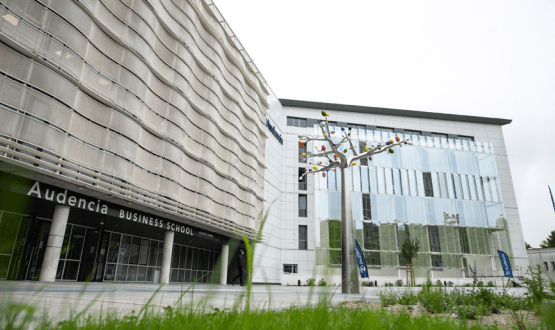
What
The Integrated Multi-Capital Performance Research Centre at Audencia, a French business school, developed the methodology for the LIFTS Accounting Model. ‘LIFTS’ stands for ‘Limits and Foundations Towards Sustainability’. The model has been tested and refined in a partnership between the Audencia research centre and Nepsen, an engineering and consultancy SME that specialises in the ecological transition.
LIFTS Accounting Model is a multi-capital model that applies the concept of a budget to planetary limits and the social foundations – the basic needs of people – across a company’s value chain. These budgets are based on internationally recognised benchmarks. The model works in parallel with the financial accounting system by associating physical flows with general ledger entries. If a company exceeds its budget for one of the dimensions in the model, then it is in environmental or social ‘debt’.
The alignment of the LIFTS Accounting Model to the accounting system shows the concrete link between a company’s activities and the limits of the planet or social needs. This can help a company to understand the changes it needs to make in its value chain to become more sustainable. The model’s insights and use of standard financial concepts makes social and environmental impacts meaningful and actionable. To make the LIFTS Accounting Model as useful as possible for SMEs, the two partners are developing a handbook, toolkit and software to accompany the model.
The partnership of university and business was convincing, demonstrating how the rigour of academic research can combine with the ambition of business to co-create an accounting model that has demonstrated compelling results and driven behaviour change.
Why
Both Audencia and Nepsen believe that financial accounting alone does not give a company enough information to understand its performance, its risks or its impact on employees, society and the environment. Yet many companies find it hard to manage these multiple dimensions of performance – especially SMEs.
Nepsen knew that accounting for social and environmental factors in its own business was a necessity. It was expected by both employees and clients, given the importance of sustainability to Nepsen’s business model. Nepsen’s employees also want to make a positive impact on the world and are more motivated by social and environmental performance measures than by financial targets and growth. Bringing sustainability into day-to-day decision making throughout the group is key to retaining employees.
Despite the market need, the company had found that not many multi-capital accounting initiatives worked for an organisation of Nepsen’s size. So Nepsen was eager to trial Audencia’s methodology. For Audencia, the collaboration has been a vital test of how the LIFTS Accounting Model can influence business decision making, and it is helping the organisation refine its offering for SMEs in particular.
Financial performance is a minimum requirement, but it’s not sufficient. This methodology shows also what we owe to the earth – it makes the impact of our actions so obvious that we can’t take an action without seeing the result it has on the earth. It will change behaviours.
How
LIFTS Accounting Model combines Audencia’s academic rigour with practical insights from Nepsen:
- There were three main steps in the pilot project. First, Audencia interviewed Nepsen’s management and finance staff about their activities and business model, to determine the most relevant focus areas. Second, Nepsen provided financial data, extra-financial data, and social and environmental data. Third, the research team analysed the data, using a tool developed in Access to calculate global performance, and presented the results to Nepsen.
- The pilot focused on one planetary boundary (climate change) and two social foundations: education and income and work. These were the most material areas for Nepsen.
- To set the budgets, the LIFTS Accounting Model uses internationally recognised benchmarks. A budget was defined for each planetary boundary and social foundation in the pilot, using the framework or initiative that has the most international consensus.
- The Access tool takes the data on physical flows and calculates whether the company has exceeded or is operating within each of the budgets set. As the physical flows are associated with the general ledger, the tool helps to identify specific action points that the company can take to improve its performance along the value chain.
- Non-financial statements show the results for each planetary boundary and social foundation, using presentation and language that is easy for finance professionals to understand. Performing well compared to the baseline will create ‘assets’ but exceeding the baseline will create ‘debts’. To help the finance team or other stakeholders understand the data, the non-financial statements can be converted into monetary units.
- Audencia, with support from Nepsen and a wider focus group, is developing software, a handbook and a toolkit with several templates to support SMEs to implement the LIFTS Accounting Model. The research centre is also developing training modules and supporting larger companies to experiment with the model.
About Audencia and Nepsen
French business school Audencia developed LIFTS, a model for multi-capital accounting. LIFTS was then trialled by Nepsen, an SME group, across Nepsen’s 13 entities. The model is based on setting a budget for social and environmental indicators that reflects planetary limits and the needs of people. The indicators and budget are set with reference to existing international frameworks for measuring non-financial performance. This data is tracked alongside financial data. LIFTS allows an organisation to see whether its activities damage natural or social capital along its value chain so it can make decisions with a clear understanding of social, environmental and financial considerations.
Note: The LIFTS Accounting Model is a registered trademark of Audencia.
Download the case study
Want a copy of this case study? You can download a PDF version using the link below.
